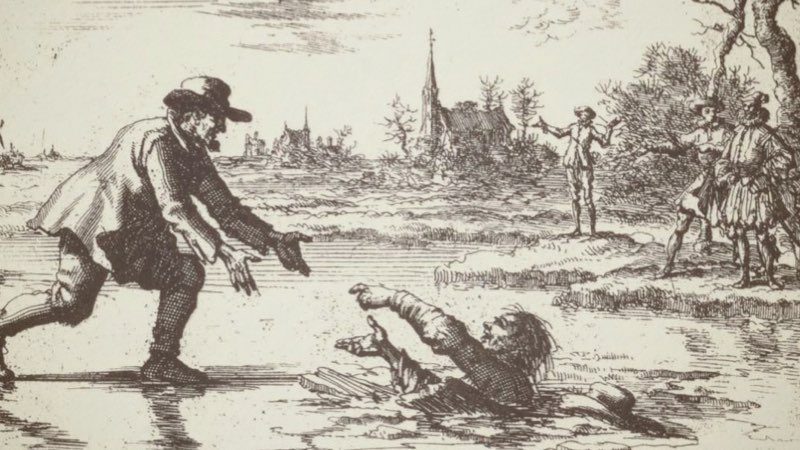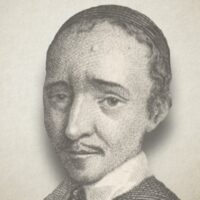
21. John the Baptist
John the Baptist, Son of Zacharias and Elisabeth, Beheaded in the Castle of Machaerus, at the Command of Herod Antipas, A.D. 32
This John, surnamed the Baptist, because he was ordained of God to baptize the penitent, was the son of the priest Zacharias, and his wife Elizabeth; whose name was made known to his parents through the angel of God, before he was born. Luke 1:5, 13.
When he was about thirty years old (about six months before the Lord Jesus Christ began to preach), in the fifteenth year of the reign of Tiberias Caesar, Pontius Pilate being governor, and Annas and Caiaphas the high priests, he was called and sent of God, to preach the baptism of repentance for the remission of sins, to prepare the way for the Messiah, as an angel or messenger before the face of Christ, to turn the hearts of the fathers to the children. Luke 3:1,2; Mark 1:2,3; Luke 1:17.
Of the dignity of this man the angel of the Lord had said, that many would rejoice at his birth, that he would be great in the sight of the Lord, to make ready a people well-prepared (as not only the prophets, but also Zacharias had prophesied of him through the Spirit of the Most High), to give knowledge of salvation unto the people of the Lord for the remission of their sins. Luke 1:14,15,77.
John, being thus sent of God, to bear witness of Christ, that He is the true light, came to the Jordan, at Salim, and other places, teaching and baptizing. John 3 :23.
In the meantime, while he was baptizing the penitent, Christ Himself came to him (to confirm this holy work), and asked to be baptized by him. But when John, from humility and good intention, declined, Christ instructed him that this was necessary, saying, “Suffer it to be so now: for thus it becometh us to fulfill all righteousness.” Then he baptized the Lord. Matt. 3:13-16.
He held the Lord Jesus in high estimation, calling Him the Lamb of God, the Bridegroom of His church, the true Messiah, whose shoes he was not worthy to bear. John 1:29; 3:29; Matt. 3:11.
He himself possessed such great influence, though in humility, that many were in doubt whether he was not himself the Messiah; hence the Pharisees sent their messengers to him, to inquire of him his vocation, mission, authority, etc. To all this he answered candidly and with an humble heart, saying, “I am not the Christ.” John 1:19,20.
When the course of his pilgrimage drew near its close, a certain matter occurred, which was the cause of his death, and happened as follows: King Herod Antipas had committed a wicked deed; namely, he had taken his brother Philip’s wife, having put away his own wife, the daughter of Aretas, king of Arabia; which conduct John the Baptist, on account of his ministry, could not let go unreproved, but called Herod’s attention to it, according to the law, saying, “It is not lawful for thee to have her” (Matt. 14:4).
However, even as the ungodly will not be reproved, so it was with Herod; for he conceived a hatred for John, and sought opportunity to kill him. But, since many had a very high opinion of this pious man, and great numbers, therefore, came to him, Herod, for the present, did not dare to lay hands on him, to kill him; however he did not let him go free, but imprisoned him in the castle of Machaerus. Enseb. Hist. Eccl lib. 1 chap 11.
In the meantime John did not relax in his calling, but even from prison sent some of his disciples to Christ, that they with the others might assure themselves through the doctrine and the miracles which they would there hear and see, that Christ, and none other, was the true Messiah. Matt. 11:2; Luke 7:18.
Thereupon, not only when these messengers came, but also on many other occasions, Christ testified of the greatness and worthiness of John the Baptist; namely, that he was the true spiritual Elias, a burning and shining light, the greatest prophet among all those born of women. Matt. 11:14; John 5 :35; Luke 7:28.
Time went on, meanwhile, and the hour of his departure was near at hand. As regards the circumstances of his death, they are thus described by the holy evangelist Matthew, chap. 14:3-12: “For Herod had laid hold on John, and bound him, and put him in prison for Herodias’ sake, his brother Philip’s wife. For John said unto him, It is not lawful for thee to have her. And when he would have put him to death, he feared the multitude, because they counted him as a prophet. But when Herod’s birthday was kept, the daughter of Herodias danced before them, and pleased Herod.
Whereupon he promised with an oath to give her whatsoever she would ask. And she, being before instructed of her mother, said, Give me here John Baptist’s head in a charger. And the king was sorry: nevertheless for the oath’s sake, and them which sat with him at meat, he commanded it to be given her. And he sent, and beheaded John in the prison. And his head was brought in a charger, and given to the damsel: and she brought it to her mother. And his disciples came, and took up the body, and buried it, and went and told Jesus.” Josephus, the Jewish historian, also makes mention of the death of John the Baptist, in the 7th chapter of the 18th book of his history of the Jews, where he writes thus:
“There was a common report among the Jews, that Herod’s army was destroyed through the righteous judgment of God, on account of John, who is called the Baptist. For Herod, the tetrarch, caused this pious man to be slain; who exhorted the Jews to all manner of virtue and righteousness, led them to baptism, and said, that their baptism would only then be acceptable to God, if they would abstain, not merely from one or two sins, but would earnestly purify the heart, through righteousness, and afterwards also the body.
“Since great numbers flocked to him, and the people were very eager for his doctrine, Herod feared, lest he (John) might induce the people, with whom his influence was great, to sedition; for it seemed, as if they would do everything according to his will and counsel. He therefore thought it best, to have him killed. For that reason he caused him to be imprisoned in the aforesaid castle Machrerus, and there put to death.”
This happened, according to our reckoning, in the year thirty-two after the birth of Christ, in the seventeenth year of Tiberias, the Roman emperor; and thus was this great light of the church of God extinguished in the midst of its brightness, to the sorrow of many pious hearts.
It is stated that his body rested at Sebasta, in Palestine, till the time of Julian, when his bones were burned by the enemies of truth, and his ashes scattered to the wind. Histor. Tripart. lib. 1. cap. 15. Theod. lib. 3. cap. 6.
Thieleman J. Van Braght (1625-1664) was an Anabaptist who is best known for writing a history of the Christian witness throughout the centuries entitled “The Bloody Theater or Martyrs Mirror of the Defenseless Christians who baptized only upon confession of faith, and who suffered and died for the testimony of Jesus, their Saviour, from the time of Christ to the year A.D. 1660” (1660).
Thieleman J. Van Braght, Martyrs Mirror



